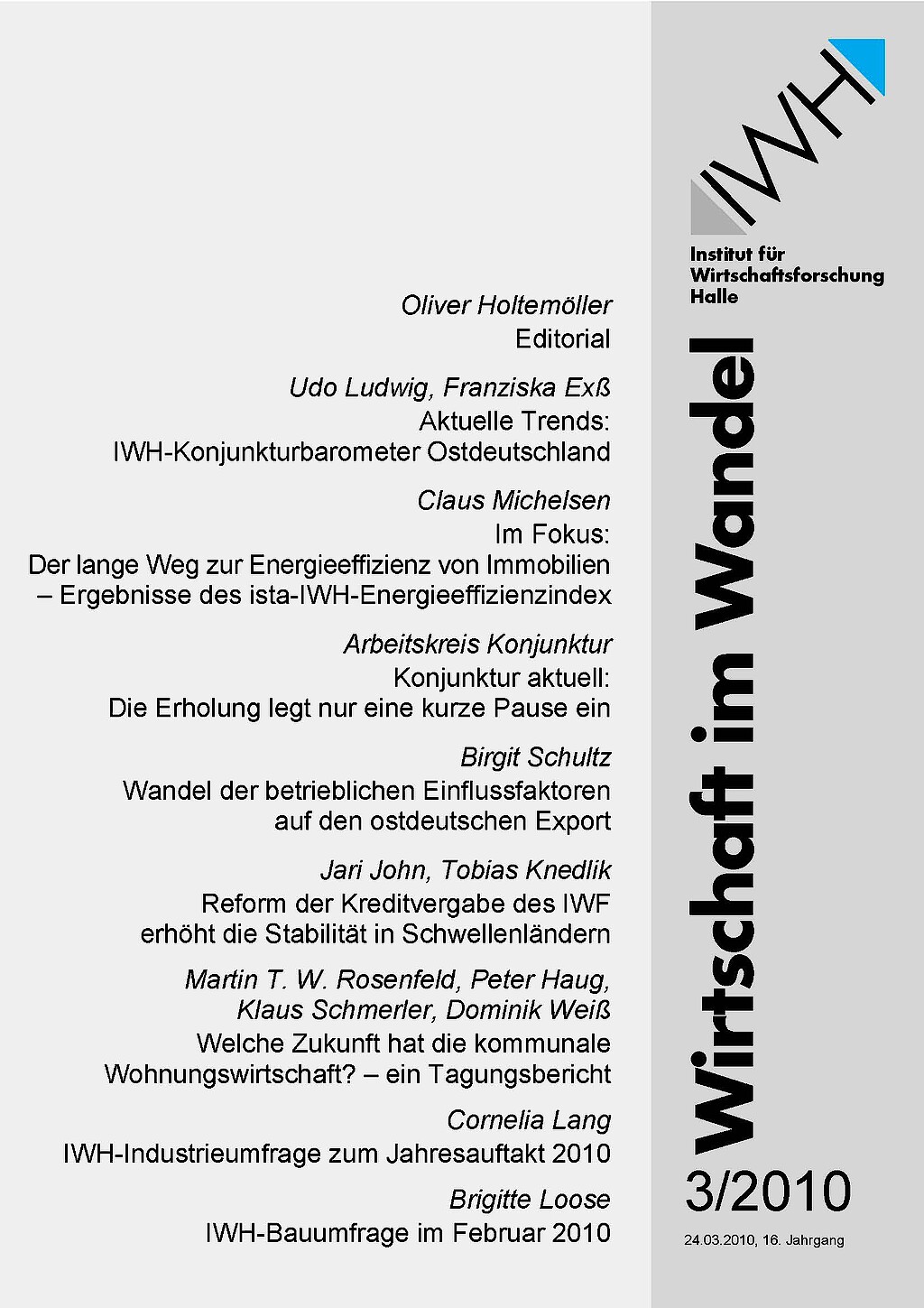
Reform of IMF Lending Facilities Increases Stability in Emerging Market Economies
Im Zuge der aktuellen Finanz- und Konjunkturkrise gewann der Internationale Währungsfonds (IWF) stark an Bedeutung. Dies zeigte sich vor allem in der erheblichen Ausweitung der verfügbaren Mittel des Fonds. Im Zuge der Krise wurden auch die Kreditlinien des IWF überarbeitet. Zwei neue Instrumente sind dabei von besonderem Interesse, die Flexible Credit Line (FCL) und die High Access Precautionary Arrangements (HAPA). Nachdem bereits früher mit präventiven Kreditlinien experimentiert wurde, ist die FCL das erste Kreditinstrument mit vorgelagertem Qualifikationsprozess, das auch auf Nachfrage stieß. Dabei ersetzt die Ex-ante-Qualifikation die bisher bei allen IWF-Krediten übliche Ex-post-Konditionalität. Dies bedeutet, dass qualifizierte Länder im Falle einer Krise direkt auf die IWFMittel zurückgreifen können. Ein langwieriger Verhandlungsprozess ist damit ebenso obsolet wie die häufig kritisierten begleitenden Reformprogramme. Damit erfüllt der IWF nunmehr wesentliche Voraussetzungen für eine präventive Kreditvergabe. Auch die befürchtete Stigmatisierung der Länder, die Interesse an den neuen Krediten zeigten, blieb bislang aus. Die Indikatoren für Polen, Mexiko und Kolumbien, also jener Länder, die bisher FCLVereinbarungen geschlossen haben, sind positiv. Die neuen Instrumente dürften deshalb die Stabilität in Schwellenländern erhöhen. Kritisch zu betrachten bleibt jedoch die Gefahr erhöhter Risikobereitschaft durch die Finanzmarktakteure, solange die Kreditinstrumente nicht von einem effektiven regulatorischen Rahmen begleitet werden. Die systemische Bedeutung der neuen Kreditinstrumente wird zudem durch die bislang geringe Nachfrage geschmälert.




